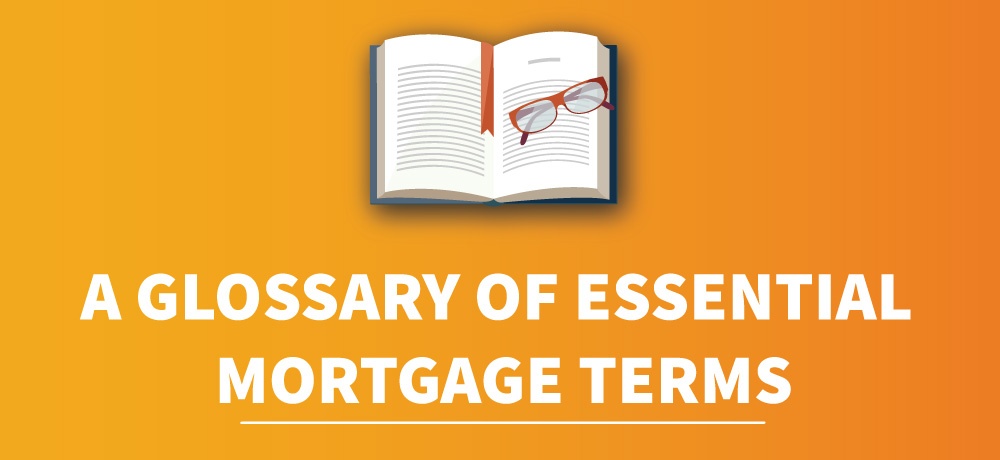A Glossary of Essential Mortgage Terms

Every industry has its own language and terms. These words and phrases can be confusing to anyone who is not part of the daily operations of a specific industry, and the mortgage business is no exception.
To help you understand the terms, acronyms, and phrases regularly used when purchasing a house and obtaining a mortgage, Anita Mortgage Team has created this handy reference guide. Here you’ll find valuable information allowing you to comprehend and communicate your mortgage needs effectively.
Mortgage
It is a type of loan in which a property is used as collateral. A borrower enters into an agreement with a lender where in exchange for upfront cash, the borrower agrees to make payments to the lender until the loan plus the compounding interest is paid in full.
Mortgage term
The length of time, usually in years, in which the parameters of a mortgage, such as the interest rate, have legal effect. The term is typically one to five years in length, however, it can be longer. At the end of the term, the mortgage balance will need to be paid in full, refinanced, or renewed into a new term.
Mortgage amortization
The length of time it will take you to pay back the loan. The most common amortization in Canada on a new mortgage is twenty-five years. If you have an uninsured mortgage, i.e., you have more than 20% equity, it is possible to have a higher amortization. The amortization is used to calculate the mortgage payment. The longer the amortization, the smaller the payment, and the shorter the amortization, the larger the mortgage payment.
Fixed-rate mortgage
The interest rate is locked in for the term of the mortgage. Your principal and interest payment will remain the same as well. Whether you are paying monthly, semi-monthly, bi-weekly, or weekly. A fixed-rate mortgage may be attractive to someone who is on a tight budget or likes the peace of mind of knowing exactly what their payments will be for the full term of the mortgage.
Variable vs. adjustable-rate mortgage
A variable rate mortgage is one where the interest rate changes with the bank of Canada prime rate, but the payments remain the same. An adjustable-rate mortgage is one where the interest rate changes with the bank of Canada prime rate, and the payments change to accommodate the new interest rate.
Bridge loan
A short-term loan that is typically used when you want to use the funds from the sale of an existing home to put as a down payment for the purchase of another house. A bridge loan is only available if you have a signed unconditional offer on your existing home.
Cash back mortgage
When the mortgage closes, you get a percentage back in cash. You may want extra cash for expenses, to buy furniture for your new home, to pay off other debt, or to cover closing costs. A cash back mortgage will have a higher interest rate.
Closing costs
The costs associated with legal and administrative actions that occur when a person buys a home. Closing costs usually run from .5% to 1.5%, depending on the location of the house and the administrative actions that occur during the sale.
Debt servicing ratios
Debt servicing ratios are used to measure your ability to pay your mortgage by insuring your mortgage and other monthly payments, such as loans and credit cards, do not exceed a certain percentage of your gross income.
Down payment
The amount of money, including the deposit that you put towards the purchase of a property. Typically between 5% and 20%. If you put anything less than 20% down, you are required to pay a default insurance premium.
Conditional offer
When you offer to purchase a property only if certain conditions are met. The sale of your home, the home inspection, and approved financing are common conditions of an offer to purchase.
Firm offer
An unconditional offer to buy a property. Either the buyer did not put any conditions on the purchase of the property or the conditions on the buyers’ initial conditional offer have all been met.
Refinance
When you re-negotiate the terms of your mortgage prior to the renewal date, there are many reasons to refinance your home. You may want to pull equity out of your home, you may want to re-negotiate a better interest rate, or you may want to add or remove someone from the mortgage and title of the property.
Mortgage maturity date
The last day of your current mortgage term. At this time, you must either accept the new terms offered by your current lender, have your mortgage broker re-negotiate a new mortgage term with a new lender, or sell your property to pay out the mortgage.
Credit report
A record of your personal credit history. This data will include your personal information such as current and past addresses, social insurance number, date of birth, previous names, and any debt that you have had for the past seven years along with their payment history. Lenders will use this history to decide if you are a credit risk or not. Lenders obtain this report from either Equifax or TransUnion.
If you’re looking for reliable mortgage brokers in Airdrie, Alberta, reach out to the experts at Anita Mortgage Team. Our services include purchase mortgage, mortgage renewals, mortgage refinance, home equity loans. We serve clients across Airdrie, Calgary, Chestermere, Crossfield, Carstairs, Cochrane, Langdon, Beiseker, Olds, Okotoks, Didsbury, Irricana, and Indus in Alberta. Please view our full list of services here, or get in touch with us here.